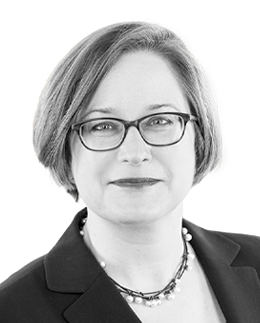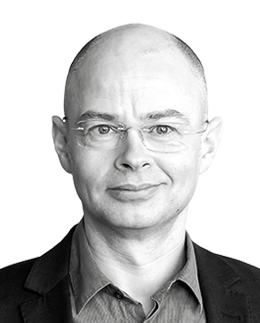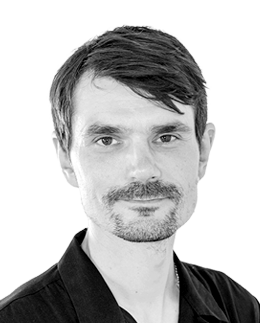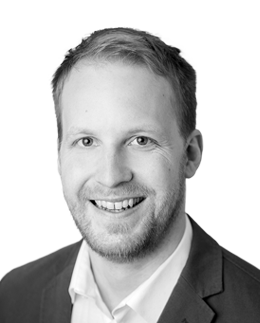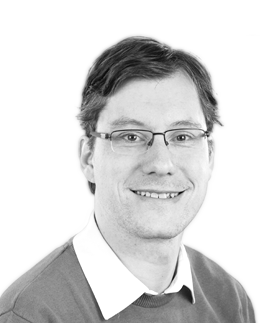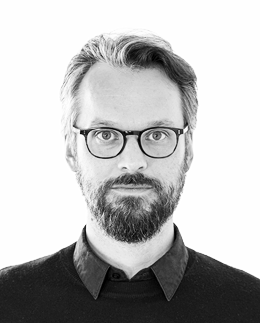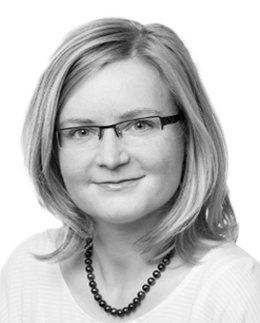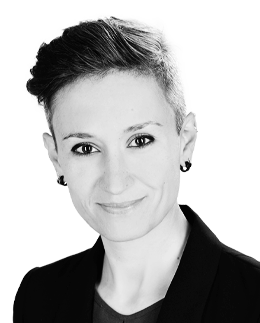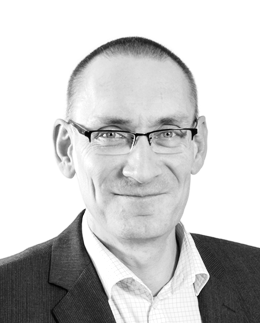Michael Grüttner studied the interdisciplinary degree programmes Social Economics (B.A.) and Social Economics (M.Sc.) at the Universities of Hamburg and Erlangen-Nuremberg, each with a sociological focus. In 2022, he completed his doctorate at the Faculty of Philosophy of Leibniz Universität Hannover. Since autumn 2012, he has been working as a researcher at the Institute for Employment Research (IAB) in Nuremberg and at the Chair for Empirical Economic Sociology at FAU in the National Education Panel Project (NEPS). There he was responsible for the non-monetary returns to education health, political and social participation. He has been employed at the DZHW since September 2015. His focus is on the sociology of education, social inequality, social exclusion and inclusion, as well as qualitative and quantitative methods.
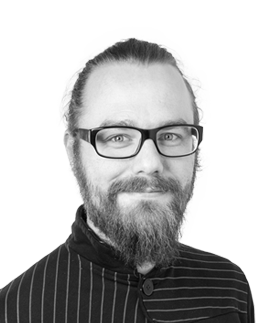
Dr. Michael Grüttner
Research Area Educational Careers and Graduate Employment
Researcher
- +49 511 450670-116
- +49 511 450670-960
- Google Scholar
- Orcid
List of projects
List of publications
Adult refugees and asylum seekers’ basic need satisfaction and educational success in pre-study programmes in Germany.Grüttner, M. (2024).Adult refugees and asylum seekers’ basic need satisfaction and educational success in pre-study programmes in Germany. Journal of Adult and Continuing Education, 1-20 (online first). https://doi.org/10.1177/14779714241237976 Abstract
Host country education can be crucial for the social integration as well as labour market outcomes of refugees and asylum seekers. To meet the same admission criteria for studying at German higher education institutions (HEI) as other international student applicants, refugees and asylum seekers can attend pre-study programmes at preparatory colleges or language centres of HEI. According to the self-determination theory, the satisfaction of basic psychological needs is relevant to learning motivation and success in educational contexts. This paper examines the differences in the satisfaction of basic needs (autonomy, competence, and relatedness) and learning motivation between refugees and other international student applicants, and the ext |
Adult Refugees and Asylum Seekers in University Preparation Programs: Competing Identities and Multiple Transitions Manifested in Stigma Consciousness and Student Self-Identification.Grüttner, M., Schröder, S., & Berg, J. (2024).Adult Refugees and Asylum Seekers in University Preparation Programs: Competing Identities and Multiple Transitions Manifested in Stigma Consciousness and Student Self-Identification. Adult Education Quarterly, 74(3), 216-235. https://doi.org/10.1177/07417136241231566 Abstract
Preparation for university studies is key to enabling adult refugees and asylum seekers to reestablish their educational and professional careers in the host country. While refugees’ transition to higher education (HE) is embedded in multiple transitions regarding social position, educational career, and migration, related identities may compete. We investigate how this is manifested in stigma consciousness and precarious student self-identification and how these factors influence the transition to HE. We combine novel quantitative and qualitative data on refugee students in prestudy programs in Germany. The results show that stigma consciousness impedes student self-identification. Moreover, stigma consciousness moderates the effect of stu |
Responsibilities and gatekeeping in using language certificates for HE admission.Berg, J., Grüttner, M., & Schröder, S. (18. Oktober 2023).Responsibilities and gatekeeping in using language certificates for HE admission [Blogbeitrag]. Abgerufen von https://srheblog.com/2023/10/18/responsibilities-and-gatekeeping-in-using-language-certificates-for-he-admission/ |
Neustart, Moratorium oder verlorene Zeit? Die zeitliche Dimension der Situation von Geflüchteten am Studienkolleg.Grüttner, M., & Schröder, S. (2023).Neustart, Moratorium oder verlorene Zeit? Die zeitliche Dimension der Situation von Geflüchteten am Studienkolleg. In J. Ordemann, F. Peter, & S. Buchholz (Hrsg.), Vielfalt von hochschulischen Bildungsverläufen (S. 133-156). Wiesbaden: Springer (online first). https://doi.org/10.1007/978-3-658-39657-2_6 Abstract
Refugees with adequate prior education often aspire to continue or take up university studies in Germany. The article looks at aspects of (educational) biographies and their relation to how participants in preparatory courses for international students at “Studienkollegs” experience time. Quantitative and qualitative data are used for this purpose. Biographically, the situation of refugees differs substantially from that of traditional participants in preparatory courses. We reconstruct different patterns of interpreting time at the “Studienkolleg”: as a professional (or educational) biographical moratorium, a new start in the host country, or as lost time. The results are discussed against the background of the current state of research .. |
Durable supports for refugees in higher education through resisting short-termism and organisational memory loss: illustrative cases from Australia and Germany.Berg, J., Grüttner, M., & Baker, S. (2023).Durable supports for refugees in higher education through resisting short-termism and organisational memory loss: illustrative cases from Australia and Germany. Journal of Higher Education Policy and Management , 45(1), 36-52. https://doi.org/10.1080/1360080X.2022.2129316 Abstract
Recently, an increasing number of students from refugee and asylum-seeking backgrounds (SRABs) entering universities in settlement countries such as Australia and Germany have necessitated the establishment of a variety of supports. However, to date, little attention has been paid to the organisational conditions surrounding such supports. This study thus examined these conditions through the conceptual lens of organisational memory loss. Based on the two illustrative cases of Australia and Germany, it was described how building durable and responsive supports for SRABs is undermined by structural, ideological, and temporal imperatives that erode the possibilities for a sharable organisational memory. |
Zwischen Wunsch und Wirklichkeit: Studienfachwahl von geflüchteten Studieninteressierten in der Studienvorbereitung.Grüttner, M., & Schröder, S. (2022).Zwischen Wunsch und Wirklichkeit: Studienfachwahl von geflüchteten Studieninteressierten in der Studienvorbereitung. In H. Bremer & A. Lange-Vester (Hrsg.), Entwicklungen im Feld der Hochschule – Grundlegende Perspektiven, Steuerungen, Übergänge und Ungleichheiten (S. 261-276). Weinheim: Beltz Juventa. |
Wege von Geflüchteten an deutsche Hochschulen (WeGe).Berg, J., Grüttner, M., İkiz-Akıncı, D., Otto, C., Schröder, S., Schmidtchen, H., & Weber, A. (2021).Wege von Geflüchteten an deutsche Hochschulen (WeGe). Daten- und Methodenbericht zu den quantitativen und qualitativen Datenpaketen des DZHW-Projekts „WeGe“. Hannover: DZHW. https://doi.org/10.21249/DZHW:wegequalistudents:1.0.0 Abstract
With the increased influx of refugees in the years 2014 to 2016, many people seeking protection came to Germany with advanced school qualifications or existing study experience. This resulted in a higher demand for preparatory language and subject courses, which must be completed in order to acquire the formal requirements necessary for admission to study in Germany. Until 2016, there were no scientific findings on the preparation of refugees for university in German-speaking countries. There was also little international research on the topic. The WeGe project therefore explored the topic and developed initial findings on the conditions for successful study preparation. |
Responsivität deutscher Hochschulen in der postmigrantischen Gesellschaft: Am Beispiel des Hochschulzugangs von Geflüchteten.Grüttner, M., Beigang, S., Schröder, S., Berg, J., & Kleimann, B. (2021).Responsivität deutscher Hochschulen in der postmigrantischen Gesellschaft: Am Beispiel des Hochschulzugangs von Geflüchteten. ZDfm – Zeitschrift für Diversitätsforschung und -management, 6(2), 191-196. https://doi.org/10.3224/zdfm.v6i2.07 |
Does the effect of studying abroad on labour income vary by graduates’ social origin? Evidence from Germany.Netz, N., & Grüttner, M. (2021).Does the effect of studying abroad on labour income vary by graduates’ social origin? Evidence from Germany. Higher Education, 82(6), 1195-1217. https://doi.org/10.1007/s10734-020-00579-2 Abstract
Studying abroad can positively influence students’ personality development, transversal skills, and labour market outcomes. At the same time, students from a high social origin are more likely to study abroad than students from a low social origin. Against this background, recent research has suggested that international student mobility (ISM) may foster the reproduction of social inequality. However, this assumption has hardly been tested empirically. Drawing on social stratification theory, we first demonstrate that a scenario in which ISM increases social inequality (cumulative advantage) is as plausible as a scenario in which it decreases social inequality (compensatory levelling). |
Erfolgreiche Studienvorbereitung? – Ergebnisse einer Mixed-Methods-Studie zum Erfolg von Geflüchteten in der Studienvorbereitung.Grüttner, M., Schröder, S., Berg, J., & Otto, C. (2021).Erfolgreiche Studienvorbereitung? – Ergebnisse einer Mixed-Methods-Studie zum Erfolg von Geflüchteten in der Studienvorbereitung. In M. Neugebauer, H.-D. Daniel, & A. Wolter (Hrsg.), Studienerfolg und Studienabbruch (S. 235-258). Wiesbaden: Springer VS. https://doi.org/10.1007/978-3-658-32892-4_10 Abstract
Since more qualified refugees have been looking for protection and prospects in Germany, the demand for pre-study programs has remained high. The WeGe project (Refugees’ Pathways to German Higher Education Institutions) examines the conditions for successful study preparation of refugees and uses a mixed-methods research design. As a conceptual framework, the Capabilities Approach (CA) serves both as a basis for a definition of success and for the analysis of requirements for successful study preparation on an institutional, social and individual level. It turns out that the vast majority of refugees successfully complete their pre-study programs. However, transitions to higher education depend on institutional barriers, which manifest them |
Refugees in Higher Education: Questioning the Notion of Integration.Berg, J., Grüttner, M., & Streitwieser, B. (Hrsg.) (2021).Refugees in Higher Education: Questioning the Notion of Integration. Wiesbaden: Springer VS. https://doi.org/10.1007/978-3-658-33338-6 Abstract
This edited volume addresses critical issues surrounding higher education access for students of refugee backgrounds. It combines a variety of theoretical and methodological perspectives on the challenges, opportunities, experiences and expectations of refugee students, as well as some of the institutional frameworks that facilitate their access to higher education. Following a critical discussion of the notion of ‘integration’, the team of authors who are made up of academics and refugee students critically investigate higher education as an objective of as well as a means to greater inclusion and integration. |
University Applicants from Refugee Backgrounds and the Intention to Drop Out from Pre‐Study Programs: A Mixed‐Methods Study.Grüttner, M., Schröder, S., & Berg, J. (2021).University Applicants from Refugee Backgrounds and the Intention to Drop Out from Pre‐Study Programs: A Mixed‐Methods Study. Social Inclusion, 9(3), 130-141. https://doi.org/10.17645/si.v9i3.4126 Abstract
The mixed‐methods project WeGe investigates key factors for refugees’ integration into pre‐study programs and conditions for successful transitions to higher education institutions (HEIs). In this article, we first examine the dropout intentions of international students and refugee students participating in formal pre‐study programs at German HEIs to disclose both barriers and resources. We use insights from migration research to extend theoretical student dropout models and analyse novel data from a quantitative survey with international and refugee students in pre‐study programs. Our findings show that refugee students intend to drop out from pre‐study programs more often than other international students. This difference disappears when |
Bildungs- und Lebenswege von Geflüchteten nach der Studienvorbereitung.Berg, J., Grüttner, M., Otto, C., & Schröder, S. (2021).Bildungs- und Lebenswege von Geflüchteten nach der Studienvorbereitung. (DZHW Brief 03|2021). Hannover: DZHW. https://doi.org/10.34878/2021.03.dzhw_brief |
List of presentations & conferences
- Deutsche Gesellschaft für Soziologie (DGS)
- DGS-Sektion Bildung und Erziehung
- DGS-Sektion Migration und ethnische Minderheiten
- Netzwerk Fluchtforschung e.V.
- Asia Pacific Education Review
- Beiträge zur Hochschulforschung
- Global Education Review
- Higher Education Research & Development
- Higher Education – The International Journal of Higher Education Research
- Journal for Labour Market Research
- Journal of Ethnic and Migration Studies
- Journal of Immigrant & Refugee Studies
- Politics and Governance
- Schweizerischer Nationalfond (SNF)
- SN Social Sciences
- Social Inclusion
- Social Psychology of Education
- Sozialer Fortschritt
- Soziale Welt
- Soziologische Revue
- Widening Participation and Lifelong Learning
- Zeitschrift für Flucht- und Flüchtlingsforschung




